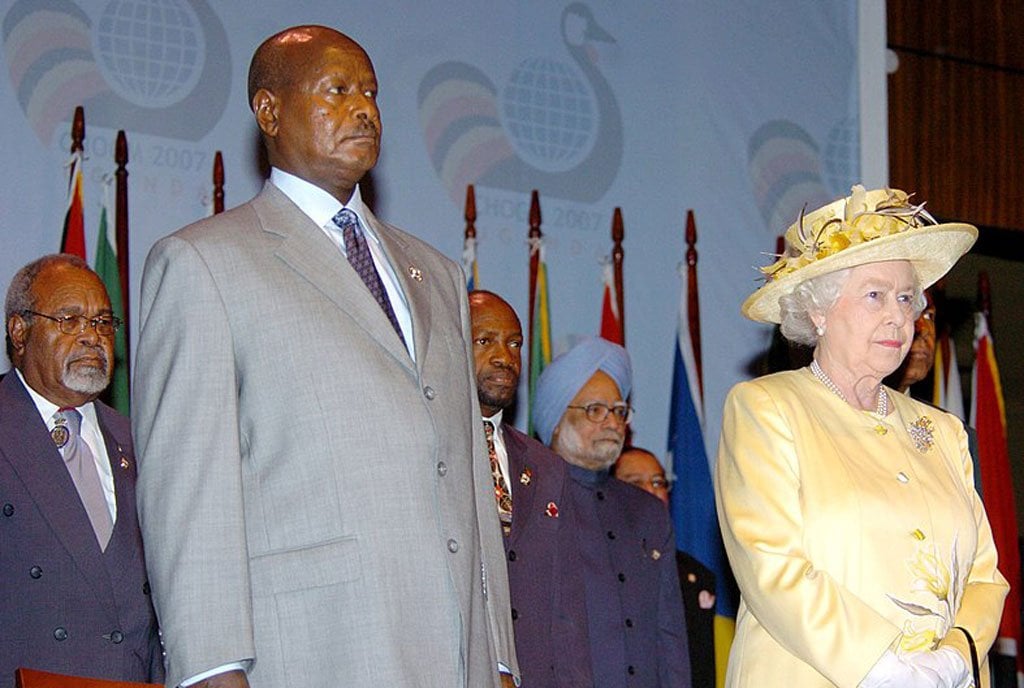Prime
A changing Britain, my mother’s verdict on colonialism

Author: Muniini K Mulera. PHOTO/FILE
What you need to know:
Who is selling Africa’s wealth today, complete with criminal disregard for the environment? As an African, I am ashamed that we have not done better than the colonialists
Dear Tingasiga:
What a week this last one was! On Tuesday, Queen Elizabeth II of the United Kingdom receives two prime ministers at Balmoral Castle. She accepts the resignation of Boris Johnson, a male, her 14th prime minister. She requests Elizabeth Truss, a female, to form a government as her 15th prime minister. It is a smooth, understated transfer of power, midwifed by a monarch who, at 96 and frail, remains the glue that holds her country together and symbolises national continuity and stability.
The official business done, the queen retreats to her private quarters. The prime minister returns to London. The United Kingdom forges ahead, as it has done for centuries, through a dramatic journey of twists and turns, blood and sweat, conquest and defeat, terror and peace, adoration, and vilification, but never deterred from its purpose. Your columnist, always in awe of that wonderful lady, is reassured by her smile, her bright eyes, and her evident stamina, that she has some good mileage left before she passes on the crown.
Less than 48 hours later, the dreadful news comes over the airwaves, in coded language about her being comfortable, under medical supervision, because her doctors are concerned about her health. In English, the patient is receiving comfort measures at her home, not treatment in a hospital, because there is nothing else that can or ought to be done. Doctors have a way of saying things without saying them.
It is all too sudden, and too hard to take. The image of the smiling gentle lady, doing her work 48 hours earlier, clashes with the reality that her death is imminent. At first, one is amazed by one’s reaction to the news, but one quickly realises that one’s history has been irrevocably shaped by Queen Elizabeth II and that which she has embodied. Grief sets in even before the formal announcement of her death, which, by God’s grace occurs quickly. Her son, the Prince of Wales, immediately becomes King Charles III.
The queen’s final act of placing her kingdom in the hands of a young woman as prime minister is a sweet story, a bookend to a 70-year reign that began during the premiership of Sir Winston Spencer Churchill, the prototypical dominant male. Of course, the queen has not chosen the prime minister, but the symbolism is powerful and rich with hope for continuing change in a country that was essentially a white male world when she inherited the crown in 1952.
Before she enters eternal sleep, Queen Elizabeth II has probably seen images on her television screen of another woman, Dr Therese Coffey, the Deputy Prime Minister; Kwasi Kwarteng, a Ghanaian Briton, the Chancellor of the Exchequer; James Cleverley, Foreign Secretary, the son of a Sierra-Leonean mother and a British father; and Suella Cassiana Braverman, the Home Secretary, daughter of a Kenyan Indian father and a Mauritian Indian mother.
In addition to this powerful quintet at the heart of the British government, she notes that the cabinet has four more members of the visible minority, namely, Nadhim Zahawi, an Iraqi; Olukemi Olufunto Adegoke Badenoch, a Nigerian; Alok Sharma, an Indian; and Ranil Jayawardena, the son of an Indian mother and a Sri Lankan father.
It is a positively changing kingdom that she has left behind, something that probably delighted her. Yet her death stirs up strong emotions and expressions of anger by many people, especially from former British colonies, who hold the deceased monarch responsible for the evils of the trans-Atlantic African slave trade and of colonialism. I fully understand the genesis of their anger and share their abhorrence of the evil deeds of the British and other European powers and their representatives during the last 500 years.
The horrors in colonial Rhodesia, South Africa, and Kenya that occurred in my life are well documented. The story of the British in India stands out as an example of humanity’s darkness and capacity for evil. In my own little Kigyezi, accounts of the colonial administrators’ deeds reveal a capacity for savagery that were not camouflaged by the pretence of spreading the Gospel of Christ and civilisation.
However, I invite those who value truth, evidence, and justice, to engage in objective interrogation of the British story, starting with that country’s own internal history and present reality; its colonial policies, actions, positive achievements, and failures; its role in the slave trade; and the personal stories of Queen Elizabeth II and her successor, King Charles III, rather than holding them responsible for the deeds of their forebears and ancestors. The painful story of slavery invites us to examine the role of all the actors, not just the British. Where do we place the Africans who sold their own people, the Arabs, and others who happily engaged in the trade in humans?
When I look at pre-colonial, colonial, and post-colonial Africa, I find it difficult to decide which was the worst period for the hapless captives of those who held power over them. Was the blood of Africans who died during the colonial period redder than that which has flowed in postcolonial Africa? My mother, who died in 2013 at the age of 90, was unequivocal with her verdict. “The British were definitely better than our rulers since independence,” she often told me. Was she right? We shall examine this in a future column.
I imagine the horrors of the slave trade centuries ago and imagine the horrors of the modern slave experience of African people, especially women, who are being shipped off into slavery in the Arab world today. Who sold Africans centuries ago? Who is selling Africans today? What is the difference?
We love to accuse Britain and other colonial powers of exploiting and plundering Africa’s wealth. Who is selling Africa’s wealth today, complete with criminal disregard for the environment? As an African, I am ashamed that we have not done better than the colonialists. Without absolving Britain and other powers of their historical responsibility for the awful deeds of some of their colonial agents, I suggest we first take responsibility for our own destruction of African human lives, Africa’s resources, and Africa’s heritage.
My thoughts are with King Charles III and Queen Camilla, and their family. They have lost a parent, the matriarch of a family that is no different from yours and mine. The suddenness of her death is as devastating to them as it is to any other family. My sympathies and prayers are all I can offer. It is well.
Mulera is a medical doctor.




